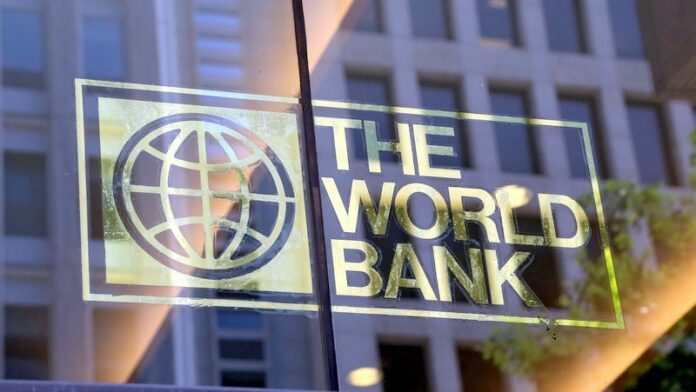The World Bank has reported that 96.3 percent Nigeria’s revenue was used to service national debt in 2022, a situation that aggravated the country’s debt stock.
The Macro Poverty Outlook for Nigeria: April 2023 brief released by the bank reports that, “the fiscal position deteriorated’’.
“In 2022, the cost of the petrol subsidy increased from 0.7 per cent to 2.3 per cent GDP.
Low non-oil revenues and high-interest payments compounded fiscal pressures. The fiscal deficit was estimated at 5.0 per cent of GDP in 2022, breaching the stipulated limit for federal fiscal deficit of 3 per cent.
This has kept the public debt stock at over 38 per cent of GDP and pushed the debt service to revenue ratio from 83.2 per cent in 2021 to 96.3 per cent in 2022.”
The bank also said that the cash scarcity created by the CBN’s naira redesign policy hampered the country’s economic growth and poverty reduction efforts, adding that about 13 million Nigerians would become poor between 2019 and 2025.
“Nigeria is in a more fragile position than before the late 2021 global oil price boom. Growth and poverty reduction have further been affected by cash scarcity in the context of the Naira redesign.
“The economy is projected to grow by an average of 2.9 per cent per year between 2023 and 2025, only slightly above the population growth rate of 2.4 per cent.
Growth will be driven by services, trade, and manufacturing. Oil production is projected to remain subdued in part because of inefficiencies and insecurity.
“With Nigeria’s population growth continuing to outpace poverty reduction and persistently high inflation, the number of Nigerians living below the national poverty line will rise by 13 million between 2019 and 2025 in the baseline projection.”
The World Bank also said that the worsening economic environment in the country had pushed millions of Nigerians into poverty.
The brief read, “Oil price booms have previously supported the Nigerian economy, but this has not been the case since 2021. Instead, macroeconomic stability has weakened amidst declining oil production, costly fuel subsidies, exchange rate distortions, and monetization of the fiscal deficit.
The deteriorating economic environment is leaving millions of Nigerians in poverty. Risks are tilted to the downside given the lack of macro-fiscal reforms, the naira demonetization, and an uncertain external outlook.”
The Washington-based bank further noted that macroeconomic stability has weakened considerably due to multiple FX rates, high and increasing inflation, rising fiscal pressures, and declining forex reserves.
It noted that Nigeria’s fiscal position has deteriorated since 2015 due to declining oil revenues and rising expenditures, resulting in persistently high fiscal deficits.
The bank also said that Nigeria’s chronically high inflation has been on the rise since 2019, especially for food items, eroding the purchasing power of poor and vulnerable Nigerians and increasing poverty.
The lending institution said that inflation reached an annual average of 18.8 per cent in 2022, a 21-year high, with food inflation in 2022 estimated to have pushed five million Nigerians into poverty.
It added that multiple FX windows, the central bank’s provision of development finance at subsidized rates, and monetization of the fiscal deficit compromise the effectiveness of monetary policy in the country.




